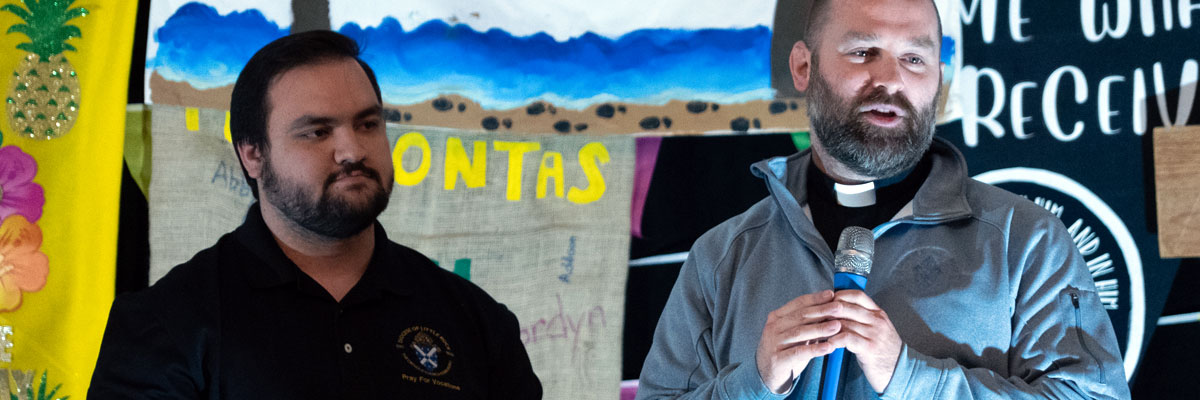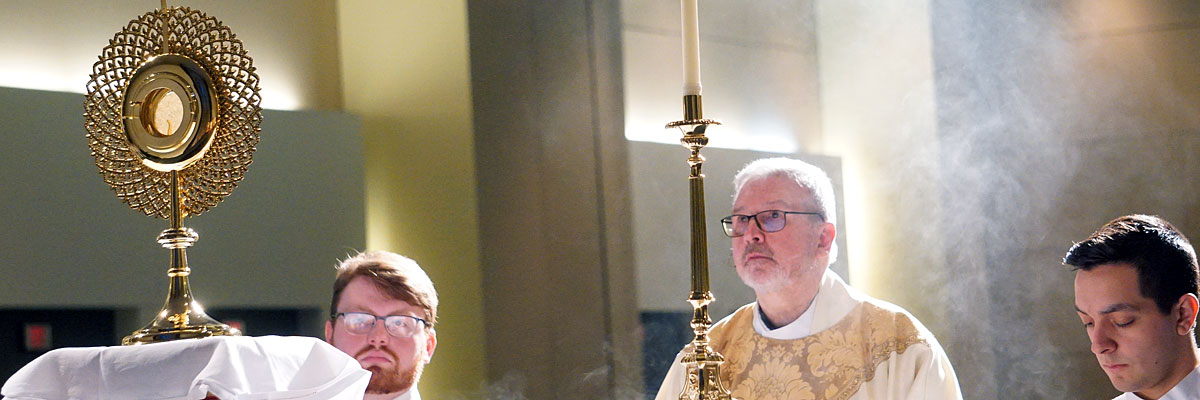Official Website of the
Catholic Diocese of Little Rock
22nd Sunday in Ordinary Time, Year A
Published: August 31, 2014
Bishop Anthony B. Taylor preached the following homily at St. Andrew Church in Yellville in celebration of the parish’s 30th anniversary on Sunday, Aug. 31, 2014.

Bishop Taylor
Every four years we look forward to the Olympics, one of the nicest regularly recurring events on our planet. Athletes from all over the world compete positively, including those from countries that otherwise have difficulties with each other. Moreover, we get to see many sports that we never hear about otherwise — for instance, the hurdles. Those who run the hurdles have to do it faster than anyone else and without a single stumble. If a hurdler does stumble, it usually is because of some small misstep, which gets him off balance when it is time to make the next jump.
In today's Gospel we have a very peculiar interaction between Jesus and Peter. In the immediately preceding verses Jesus has just declared that Peter is the rock on which he will build his Church. Now he calls him a satan and accuses him of trying to make him trip and fall. What gives? The problem is that Peter is OK with believing that Jesus is the Messiah, the Son of the Living God, but he can't handle the thought of Jesus' death. But this is the course he is on and so Peter's opposition to the cross is not helpful — indeed, his concern for Jesus' physical well-being is an obstacle and a temptation.
Earlier the real Satan had tempted Jesus in the desert and at that time he refused to use his miraculous powers to relieve his hunger, or to impress unbelievers or take a short-cut to establishing his kingdom. Now Peter tempts him as he begins to face the cross, and here Jesus steps over the trip hazard of Peter's misplaced concern: he will go to the cross.
The cross, when embraced with love and trust that God knows what he's doing, changes us.
Every one of us has to face hurdles in this life — some of which are harder than any ever run by an Olympic athlete. But it is the trip hazards that are the bigger threat. Far more people mess up their knees by tripping on the stairs than ever do by stumbling over hurdles in a track event. The hurdles are one meter high, we see them coming and so we can prepare ourselves for them. But trip hazards catch us unprepared. One moment we're on our feet, the next moment we're flat on the ground and don't know what happened.
Most trip hazards are, in a way, small; that's why they're so dangerous. Naturally Peter didn't want Jesus to suffer — who could find fault with that? But if that was God's will, if that was the price of our salvation, then to push for anything else was a trip hazard. Naturally none of us wants any of our loved ones to suffer — who can find fault with that? But God's plan for that loved one may be beyond our capacity to understand. The cross they have to bear may be what saves their soul.
I once had a parishioner who came to faith as a result of being arrested. His whole world had come crashing down and in his despair he turned to his wife's Catholic religion for comfort. He attended RCIA (Rite of Christian Initiation of Adults) here while his case was awaiting trial and later I received him into the Church at the Oklahoma county jail. He eventually got a 10 year sentence. One day he said something to me that I'll never forget. He said, "this is the most horrible thing I've ever had to go through, but you know, if I had not been arrested, I may never have come to faith. If this is the price of my salvation, then I guess it's worth it."
That's what Jesus is telling us. The cross is the price of our salvation — Jesus' cross, of course. But also the crosses that we have to bear.
What is the cross in your life? What hurdles do you face? The cross, when embraced with love and trust that God knows what he's doing, changes us ... and through us, can touch the hearts and open the minds of others as well. In this way it will become salvific for you and for those who know you. Jesus implies that every person bears a cross and it is a serious trip hazard to deny it, to pretend that it isn't there.
The issue is what we do with it: that we take it up our cross, that we embrace it, that we learn to love it, confident that this cross — whatever it is — is part of God's plan of salvation for us and for others: "Whoever wishes to come after me must deny himself, take up his cross and follow me."









